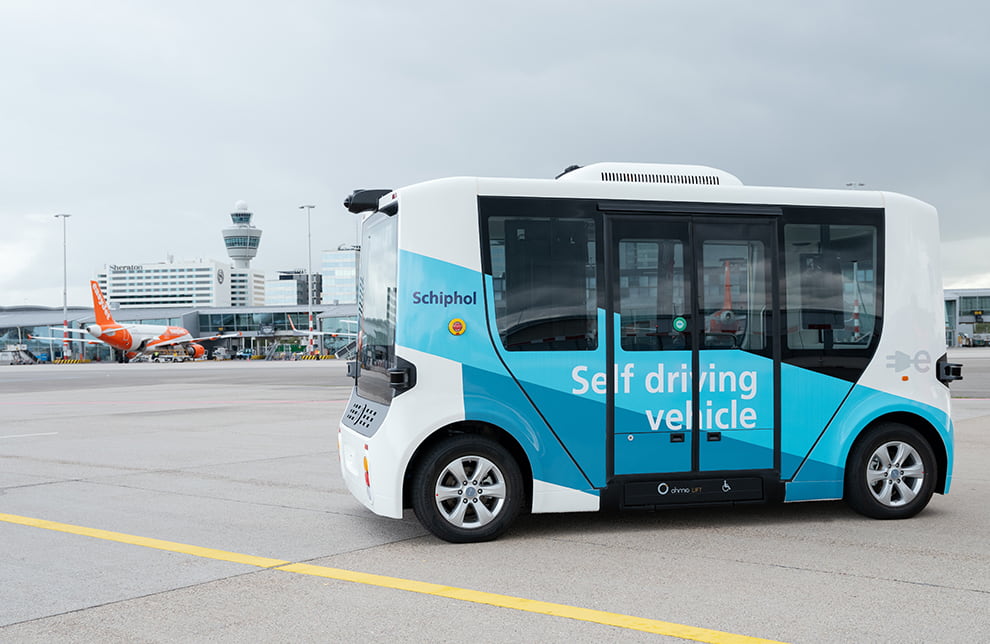DeNoize onderzoekt en ontwikkelt geluidswerende technologie: Schiphol supports soundproofing start-up DeNoize
Start-up DeNoize is researching and developing soundproofing technology for windows in houses. Schiphol sees great potential in these innovations and supports DeNoize’s efforts, which could make a positive contribution to the quality of life experienced by local residents. To learn more about the work DeNoize is doing, go to https://denoize.com/.
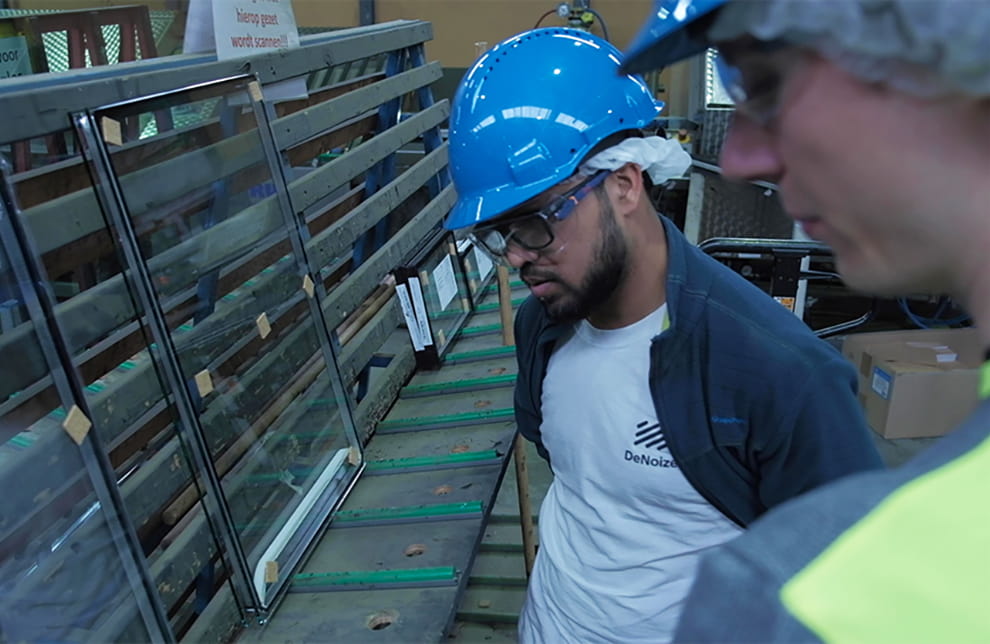
About DeNoize
Founded in 2019, DeNoize is a start-up focused on developing soundproofing technology for windows in houses. Their invisible system actively cancels out a large range of low-frequency noise by producing counter vibrations, responding immediately to any sounds it registers. This could be an airplane flying over, but also a truck or train passing by.
Why would DeNoize’s technology be an effective way to keep out aircraft noise?
Overflying aircraft produce low-frequency noise, which has a frequency below 100 Hertz and is difficult to keep out with standard single or double glazing. DeNoize’s technology offers a solution for precisely this frequency range.
Why is Schiphol supporting DeNoize?
Schiphol is actively working on its relationship with the local community and wants to improve the quality of life around the airport. To achieve this, efforts are being made to find the right balance between the benefits and drawbacks of living close to Schiphol. We see great potential in DeNoize’s innovative technology as an opportunity to reduce noise nuisance. That is why we want to ensure that the further development of DeNoize’s technology specifically looks at how this technology can contribute to the needs of people living near Schiphol. Providing support where needed, we encourage DeNoize to involve local residents early on so that the end product meets their wishes and needs as much as possible.
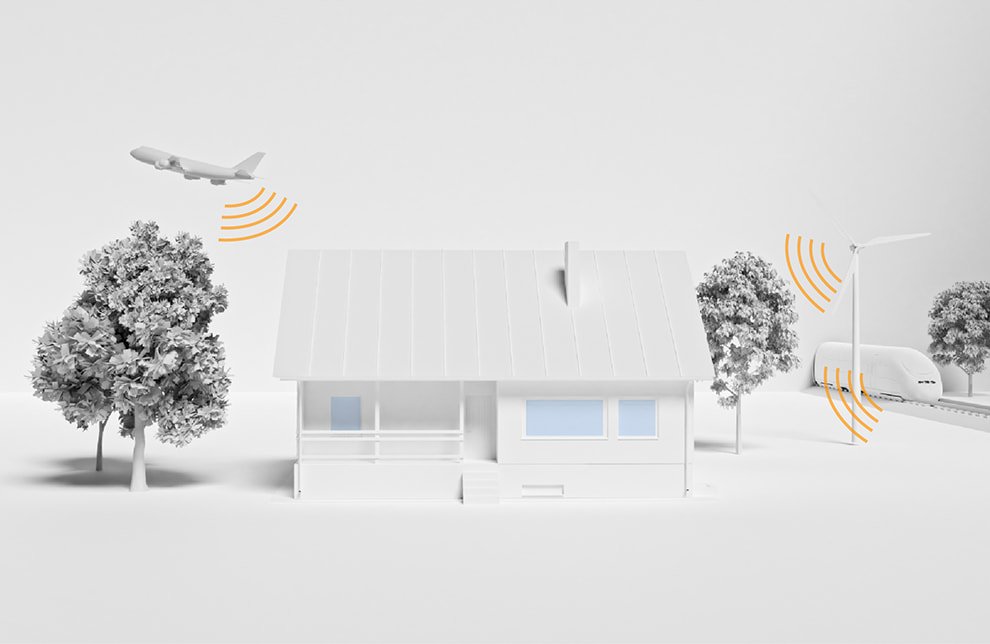
Research involving local residents
The first phase of DeNoize’s research will start in October 2020. The results produced during this phase will form a basis for the further development of tailor-made soundproofing technology that could eventually contribute to the reduction of indoor noise nuisance from aircraft.
Creating 'soundscapes'
One of the main goals in this first phase of the research is to gain insight into how people perceive sound in their own homes. This is done by creating so-called ‘soundscapes’ – digital representations of acoustic environments, in this case made up of all the different sounds people hear in and around the house. This might include birdsong, cars passing by, planes flying over or church bells ringing.
DeNoize will carry out its research independently, aided by University of Groningen professor Tjeerd Andringa, an expert in the field of nuisance science, who will help analyse the data. Schiphol’s involvement will be limited to candidate recruitment, by providing DeNoize access to our extensive network.
Not yet ready for market
DeNoize’s technology is still in the early stages of its development. After a number of theoretical studies, the first tangible prototype was finished at the end of 2019. This proof of concept showed that DeNoize’s technology is an effective way to cancel out pre-recorded noise when applied to single glazing. Still, it will most likely take several years of further research and development to produce real-time noise-cancelling technology for double glazing which can be brought to market.
Read the previous blogs
-
Tap and go with your Digital Travel Credential!
Published on:Can you board and cross the border faster with a digital travel document? At the request of the EU, we are testing a DTC together with the government and KLM.
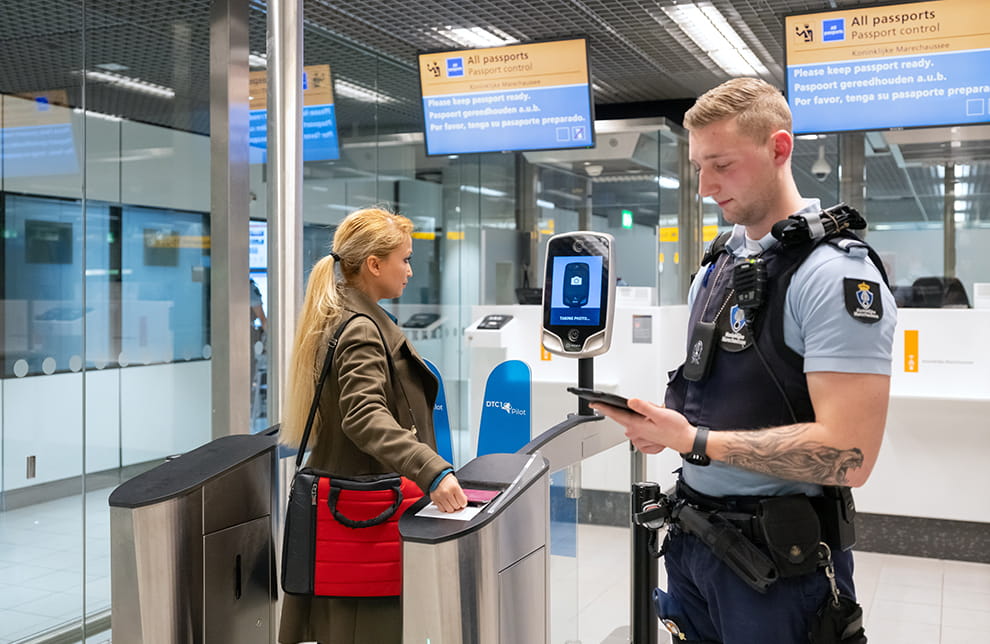
-
Test capturing ultrafine particles with droplets
Published on:We are working diligently to reduce the amount of ultrafine particles. A possibility is the use of water droplets to remove ultrafine particles from the air.
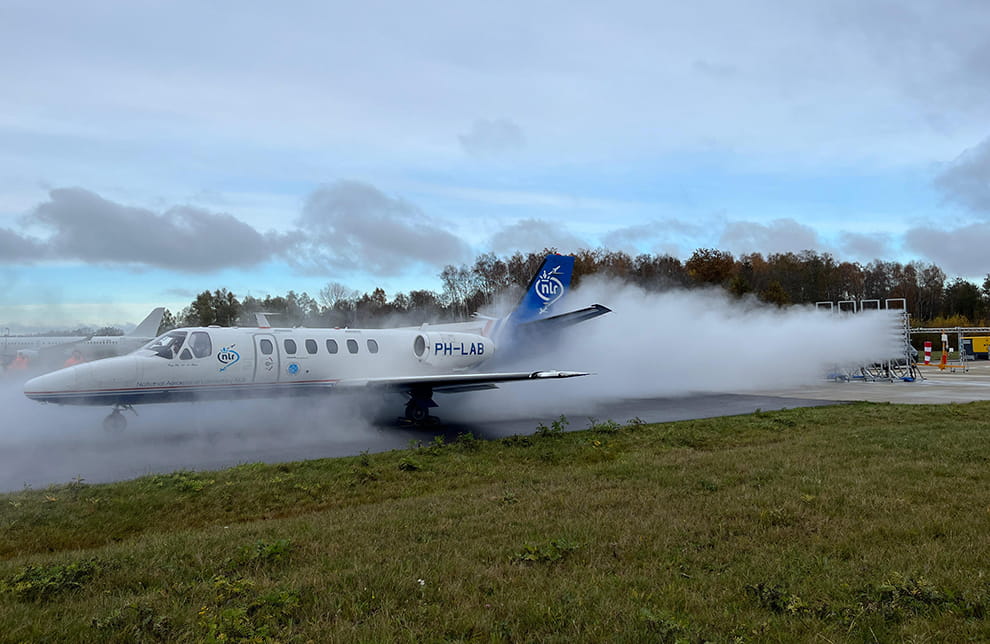
-
Autonomous Bus Initiative
Published on:Our ambition: operating the world's most sustainable and top-tier airports by 2050. With this in mind we're putting autonomous buses to the test on airside.
